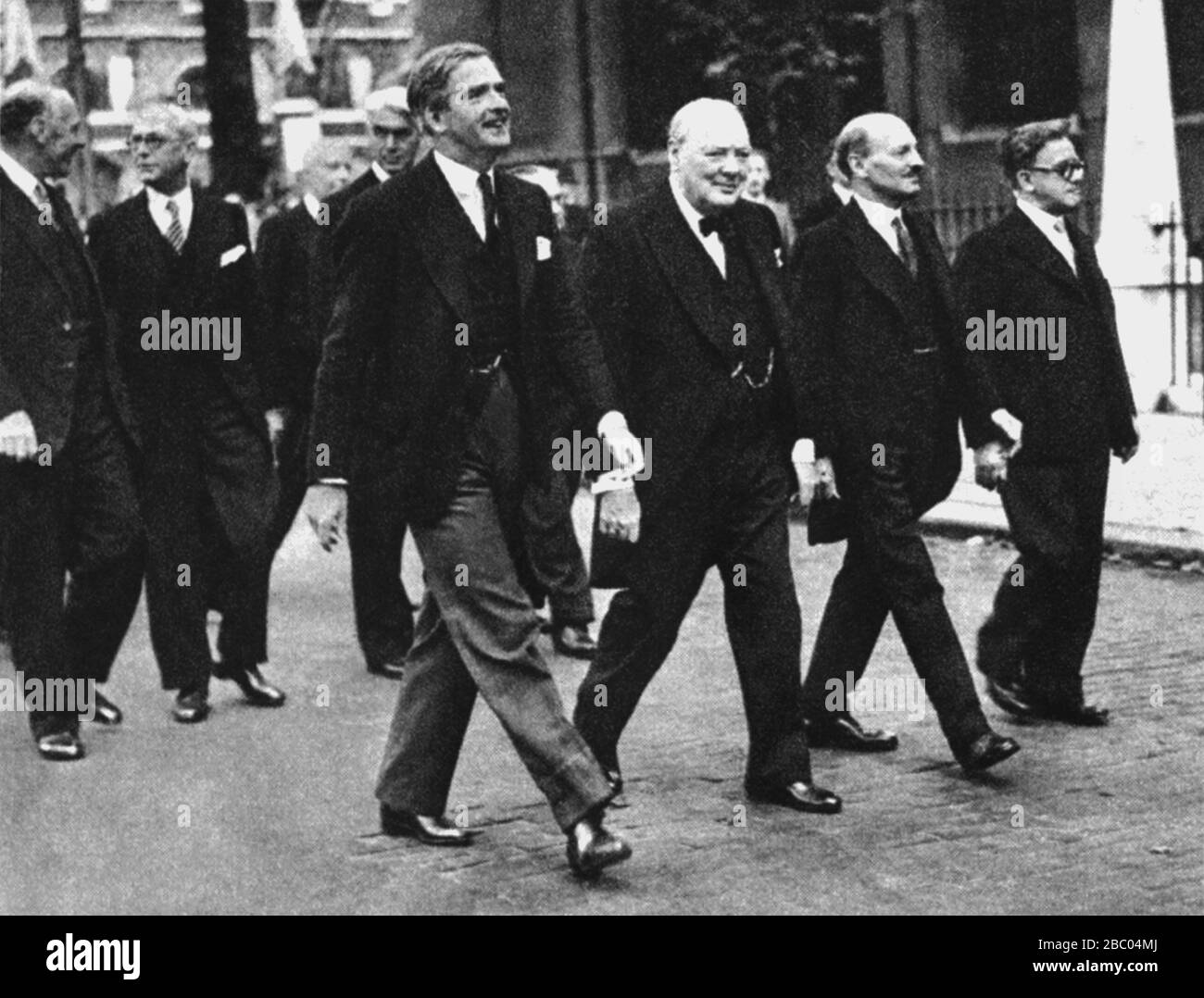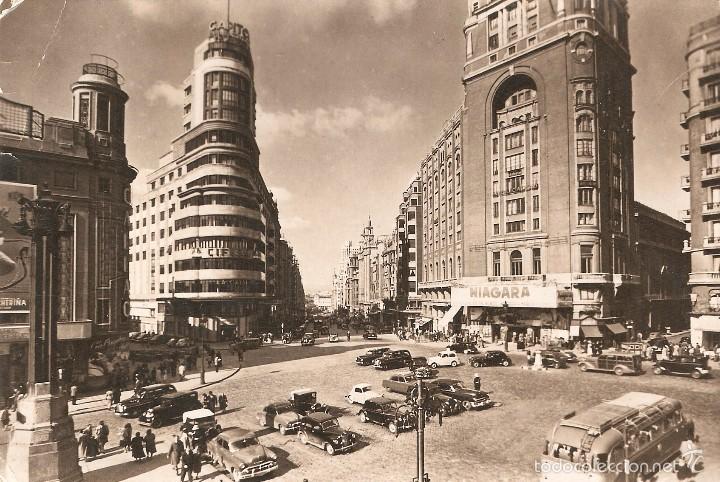Chiang Kai-shek with his son Chiang Ching-kuo
127, The Rise of a Giant: China (1945-1952)
In the aftermath of World War Two, the maps of Asia were redrawn. The Japanese Empire had been completely destroyed by the war. From its ashes emerged a new country, a democratic Japan that retained Emperor Hirohito, even if with his status reduced to a mere figurehead. The United States would occupy the country until 1954, when independence was restored to the nation with an American-written constitution which laid out a liberal democratic framework to replace the militaristic absolute monarchy system and limited the country to maintaining a small, purely defensive military. Korea also suffered a deep transformation. From being a Japanese colony, Korea became a Presidential Democracy.
China emerged from the war truly broken. The anti-Japanese rebellions that erupted in the last three months of the war had led to four countries being carved out of the battered and blood-soaked ancient empire. Chiang Kai-shek returned to China after a long exile in the United States wand wasted no time to reshape Nationalist China into is vision of what it should be: a conservative nation, based on traditional values and an iron-fist discipline, all under the watchful eye of Chiang. Outisde of his graps remained Tibet and Mongolia, which had annexed Mengkukuo and the western half of Manchukuo, greatly expanding her size. For the moment, Chiang accepted this fait accompli. However, the Chinese Generalisimo was not a forgiving man and wold never forget this slight. In 1949, US President Dewey withdrew American forces from Korea. With China relatively stable – despite a tense border and even tenser relations with Mongolia – and Korea in no particular danger, the President was willing to bring the troops stationed on the peninsula home.
As we have already seen, the French ran into trouble when they returned to Vietnam in 1947, which had been occupied by the Japanese in 1941. In reaction, the Viet Minh, a national liberation movement, rose up in revolt against French authority. Thus, Rome began to actively support the Viet Minh with weapons and supplies. Their aim was to expand Communism into Southeast Asia (and beyond). Of course, the Dewey Administration in turn supported the French effort to suppress local Communism and maintain control over Vietnam. In 1951 that war took a disturbing look when troubling news arrived to Paris, London and Washington: the Viet Minh were increasingly equipped with Communist weapons and supplies. Looking at the geography of Asia, it didn’t make any sense. Vietnam was cut off from Europe and the Communist Alliance led by Italia. How were the arms getting through? Nanjing reassured the White House that they were doing their best to make sure that Communist aid wasn’t flowing into Indochina through them. Thus, the Dewey Administration had no reason to doubt Chiang’s sincerity. In any case, the newly created Central Intelligence Agency (established in 1949, was ordered to investigate the puzzling mistery. Then, Dewey went for an Asian tour – the first sitting President to do so. He visited the Philippines, Japan, Korea, Chiang's China, and India. He met Kai-shek in Nanjing. During their after-dinner conversation, Dewey casually mentioned to Chiang the Vietnamese enigma. Apparently, Chiang answered that he not only had no idea about what was going on in his southern border, but also he did not care at all.
Once back in Washington, Dewey discovered the truth: Chiang had betrayed him; he had a deal with the Communist Block. According to the CIA, it all started in 1948. When the Americans decided to arm the French, Rome had secretly recognizing Ho Chi Minh’s government as being the “true” Vietnamese government. The big obstacle they then faced was how to send their support. Meanwhile, since he returned to China, Chiang had been paranoid about his hold on power. One of the first things he did was to heavily militarize portions of his border with India, Mongolia, and Russia as he was afraid of a sudden foreign invasion of his country. With Rome wanting to aid the Viet Minh and Chiang mad with paranoia about the US support of the French in Indochina, that may become a huge Americana military base in his southern border, both sides found a solution to their problems and began to negotiate. Althought the CIA could not say who had the idea, Rome and Nanjing had entered into secret negotiations in the fall of 1949. In exchange for access to the southern ports of China and the Yunnan region. Chiang had signed a non-aggression pacts with the Communist block. Suddenly the Chinese Generalissimo wouldn't have to worry about any Communist insurgency in his country.
This was to change in 1952. The Viet Minh (led by General Nguyen Giap) launched a strong offensive against the isolated French posts deployed along the Route Colonial 4, or RC4, in Northern Vietnam. So far, the repeated Viet Minh ambushes had led to repeated French operations to reopen the road. This changed in 1952, when the garrison at Lai Khe was overrun (August), followed by Cao Bang (October 25-November 14 ), even if the latter only fell after huge Viet Minh losses. The next attack was against Dong Khe on February 15, 1953, a defensive position that protected bo the RC4 and the Chinese border (through which the Viet Minh were receiving supplies via the Yunnan Road), which was occupied on March 3. The French, now led by General Raoul Salan, knew that Lang Son would be next, so they decided to abandon the hedgehog strategy and withdrew the 4,000 French Foreign Legion troops of the garrison, even if 700 of them died in the withdrawal to the Red River Delta. Now the Viet Minh would be able to obtain their supplies from the the Communists without troublers with the French, who abandoned the Tonkin province and constructed a fortified line stretching from Hanoi to Haiphong, the so-called “Salan Line”. Conceived to force the Viet Minh to assault this fortification head-on, it seemed to be the right answer when, on June 12 Giap attacked the Vinh Yen sector (twenty miles NW of Hanoi) just to have his forces obliterated by concentrated artillery and machine gun fire. His next attempt against Mao Khe, in August, did not fare better.
The attacks would go on until late 1952. Giap lost 15,000 men to little gain while Paris was ecsatic with this success. They had found the right general and the right strategy.
Just in time, as the opposition to the war in France was growing. To the average French citizen, Indochine wasn’t worth wasting so much money and lives.








